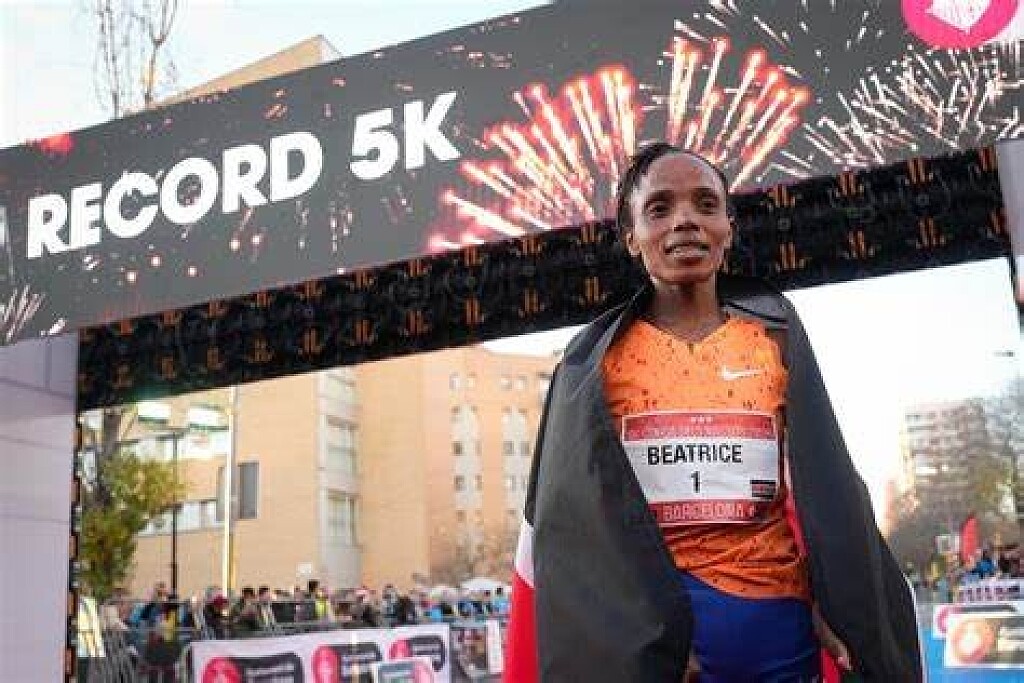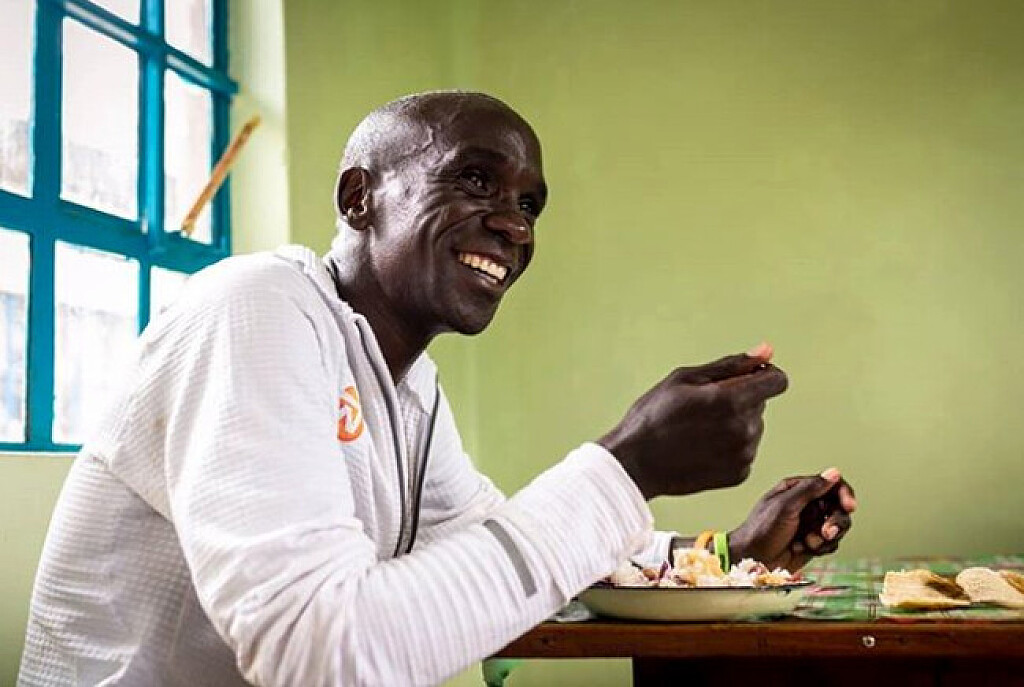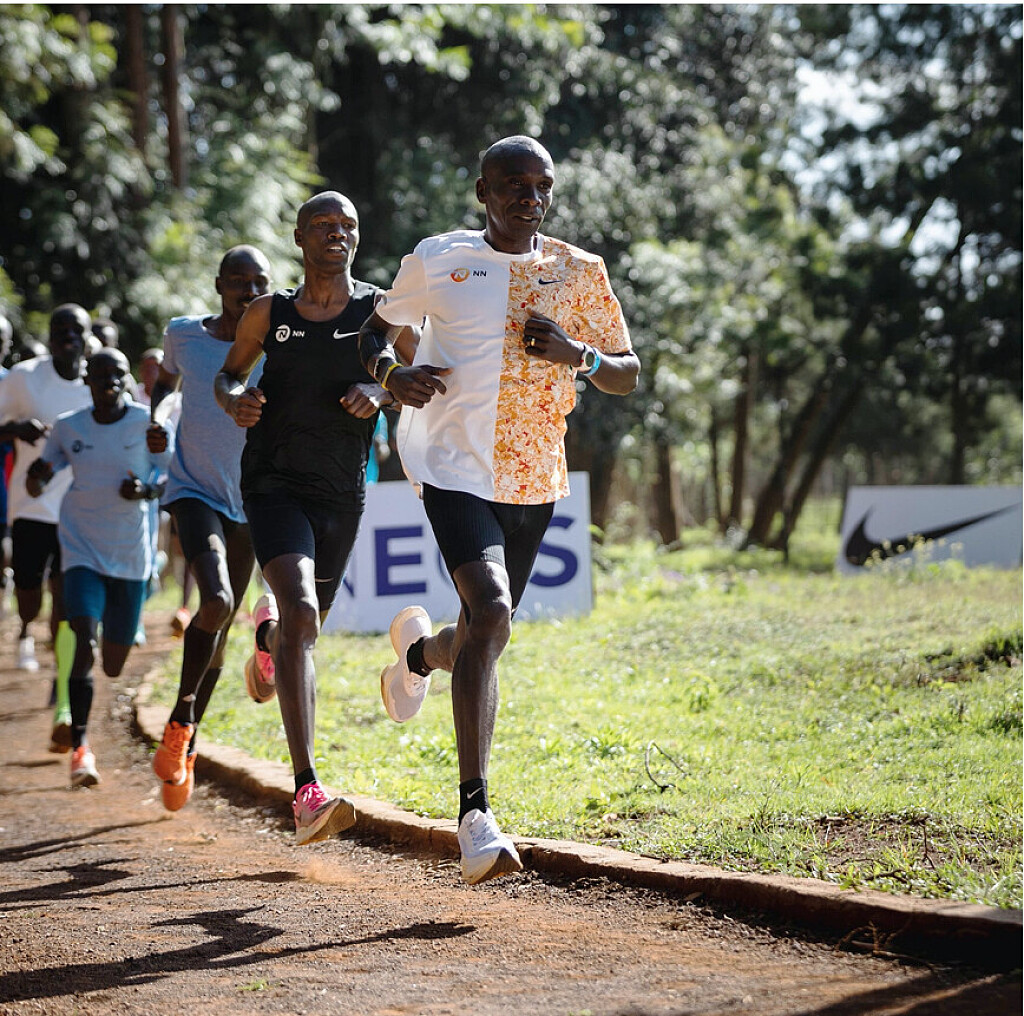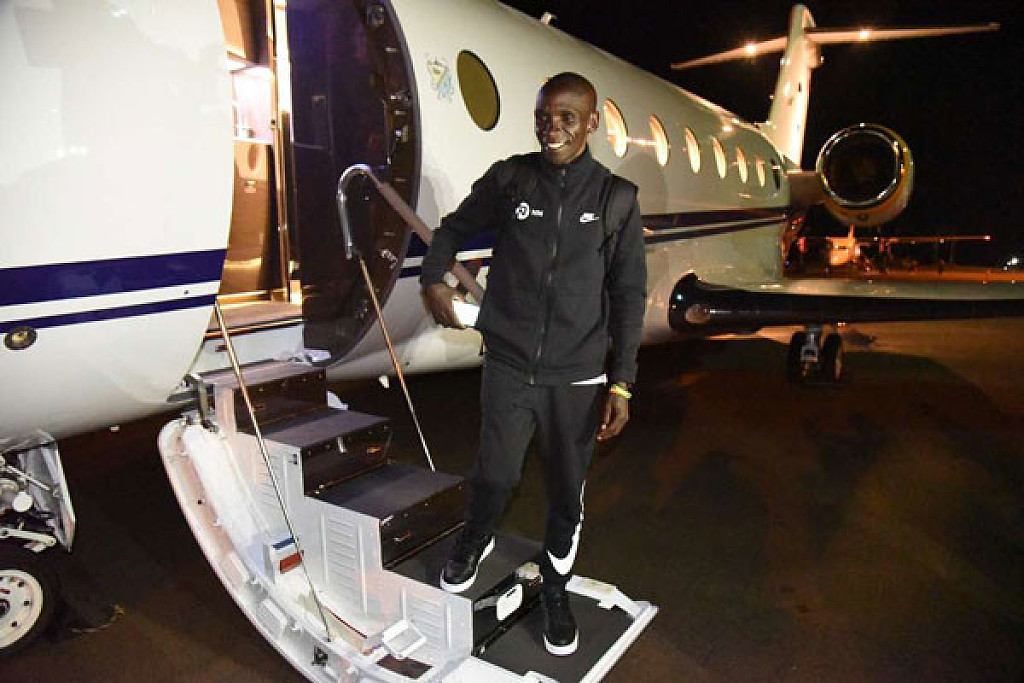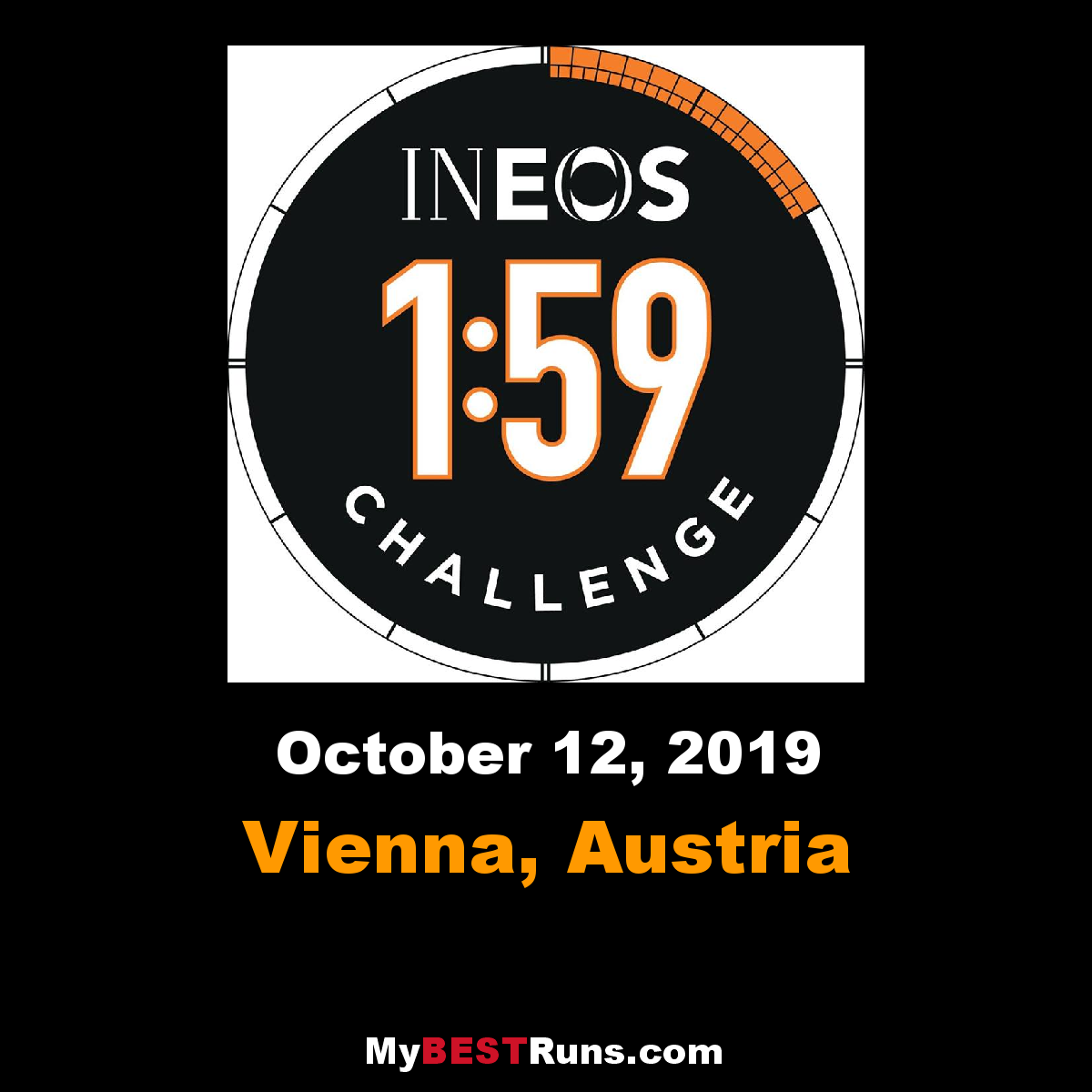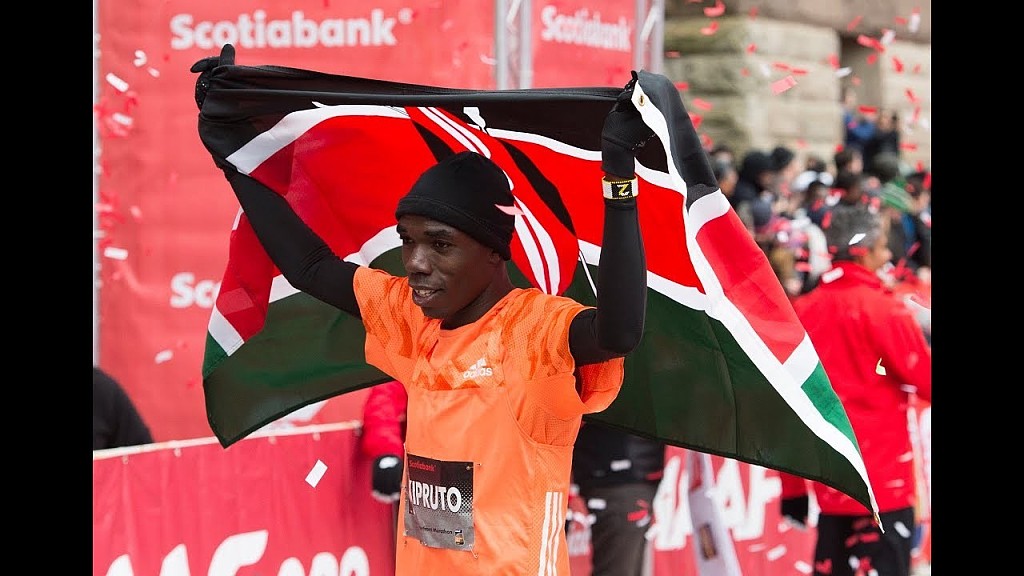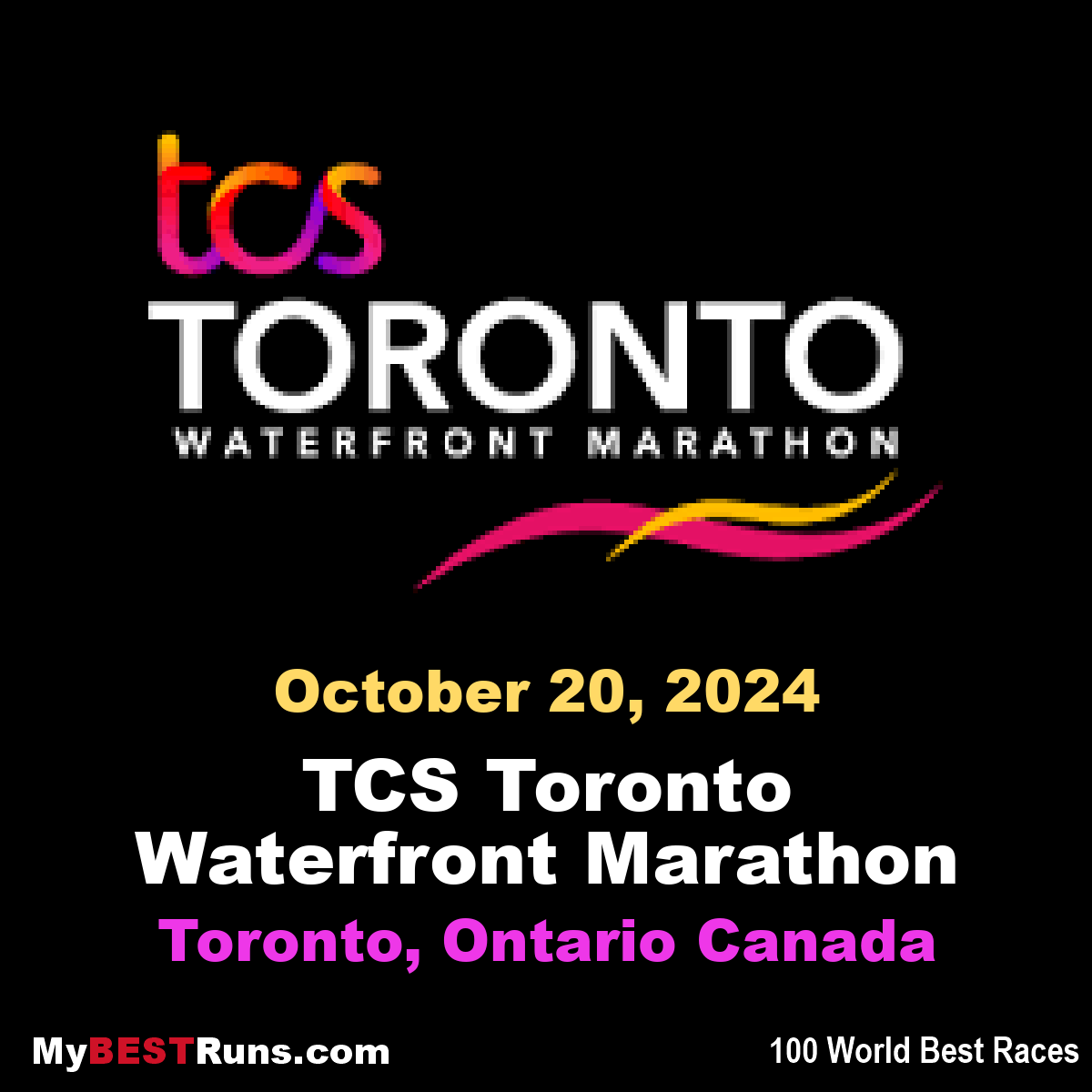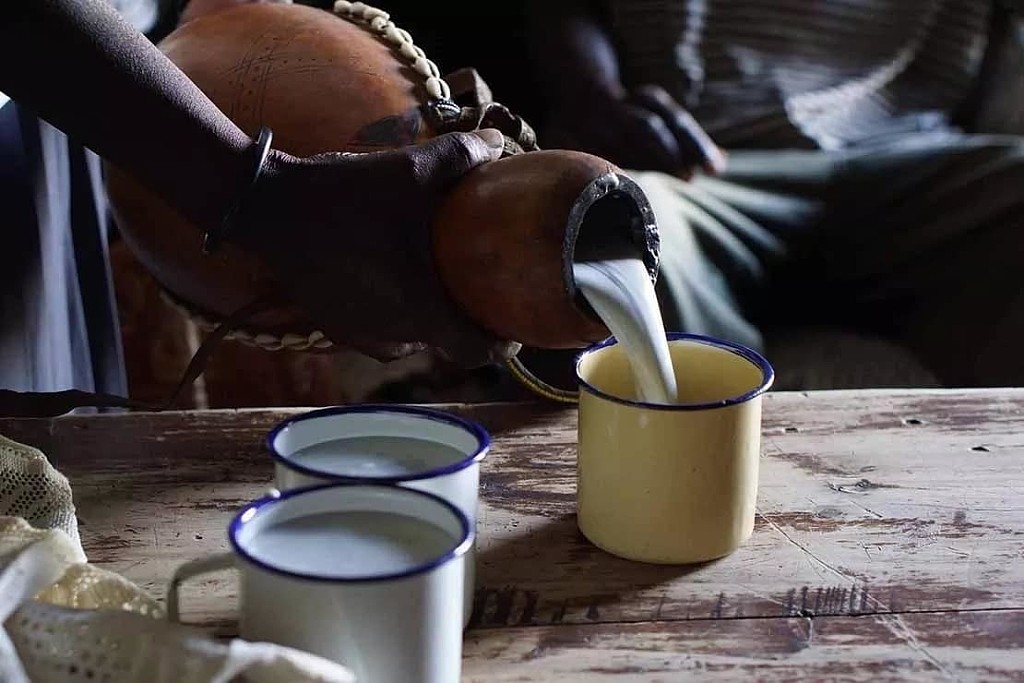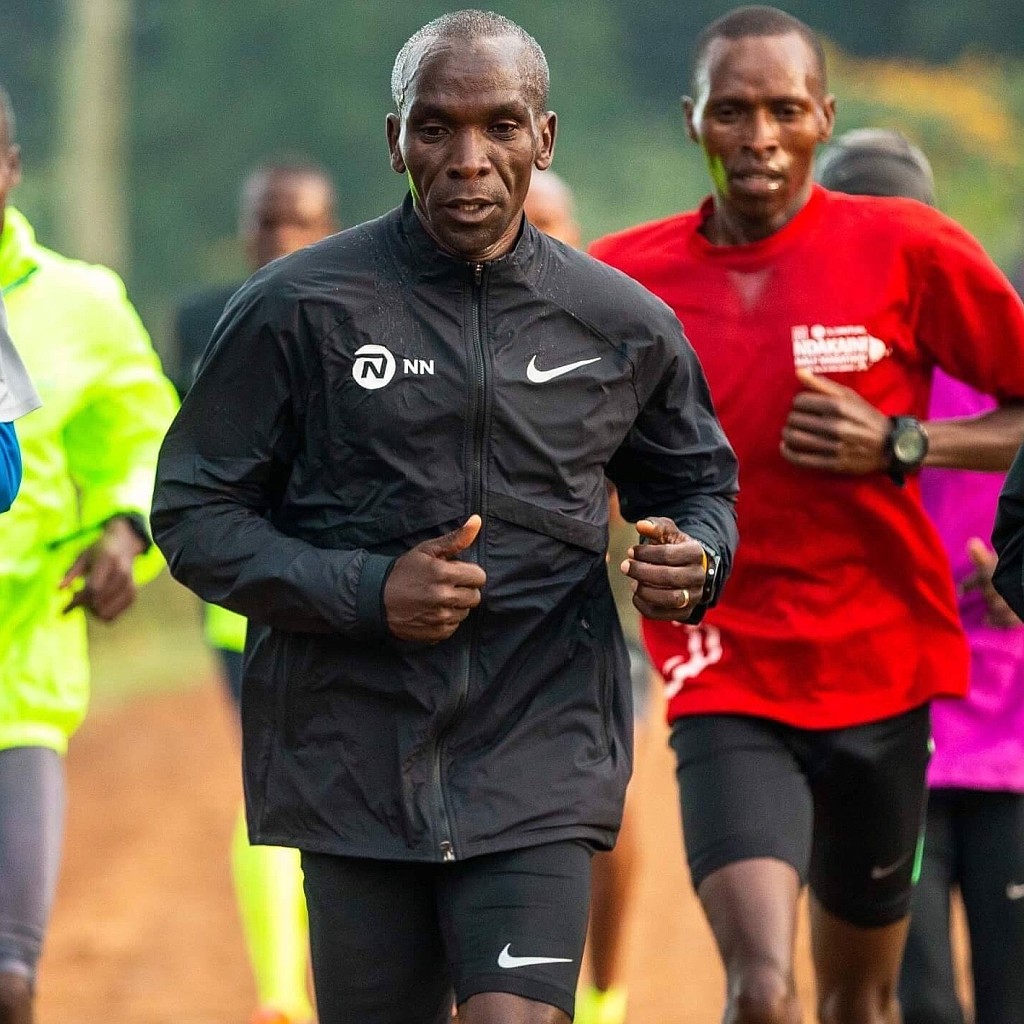Running News Daily
Running News Daily is edited by Bob Anderson. Send your news items to bob@mybestruns.com Advertising opportunities available. Train the Kenyan Way at KATA Kenya and Portugal owned and operated by Bob Anderson. Be sure to catch our movie A Long Run the movie KATA Running Camps and KATA Potato Farms - 31 now open in Kenya! https://kata.ke/
Index to Daily Posts · Sign Up For Updates · Run The World Feed
Articles tagged #Mursik
Today's Running News
Record-breaker's diet: Beatrice Chebet reveals what she eats to fuel her to world records and gold medals
Double Olympics champion Beatrice Chebet is basking in the glory of yet another world record following her heroics in Barcelona but what does she eat to fuel her to success?
Beatrice Chebet is among the athletes who had a fantastic 2024 season when she won two Olympics titles and broke world records.
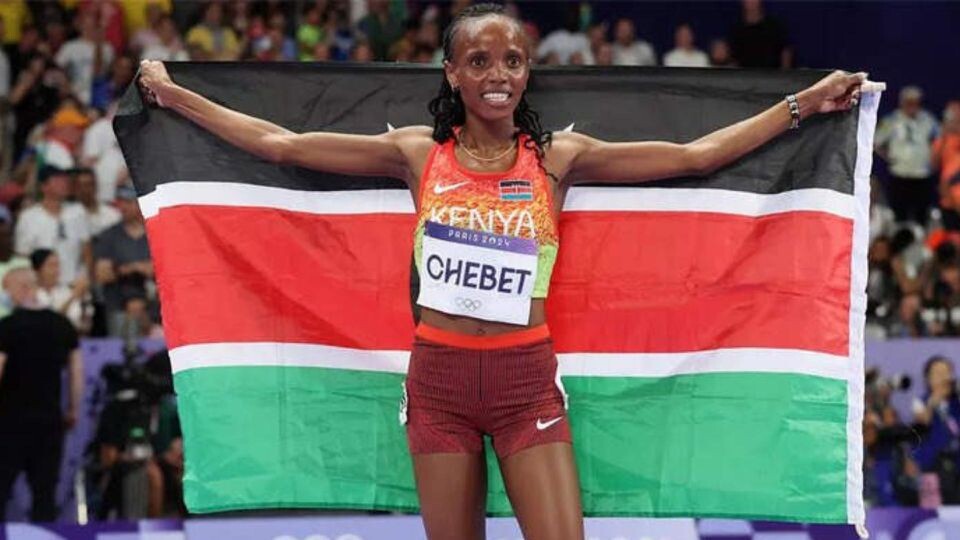
Chebet signed off the year in style as she smashed the 5km world record by running 13:54, to shave 19 seconds off the previous mark, at the Cursa dels Nassos in Barcelona on New Year’s eve.
It was a great way to end a year that was filled with so much success for her, having started by defending her World Cross Country title, before smashing the 10,000m world record at the Prefontaine Classic in May.
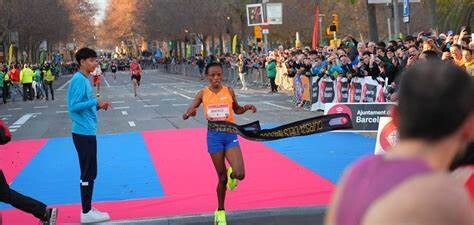
Chebet would then go on to win two Olympics gold medals in Paris, claiming the 5,000m and 10,000m titles before adding the Diamond League crown.
Having such a remarkable season needs good preparations and for Chebet what she eats matters a lot because it is what fuels her to success.
The 24-year-old keeps it simple when it comes to diet and sticks to Kenyan delicacies which have served her quite well going by her achievements on the track.
“I like ugali because it has energy and after training, I have to eat it,” Chebet told NTV just days before her record-breaking feat in Barcelona.
“I also love white meat and chapati is also my favourite. Milk is also good, mursik [fermented milk that is a staple for the Kalenjin community] is a good accompaniment for ugali.
“Generally, I eat everything as long as my body does not react to it because at the end of it, I do a lot of training.”
Like most of her Kenyan peers, Chebet sticks to what she knows and grew up eating, resisting the allure of trying out new things.
As she starts 2025, more glory is expected from her with the success of 2024 increasing pressure to do the same, or even better, this year especially at the World Championships in Tokyo, Japan in September.
by Joel Omotto
Login to leave a comment
The simple, yet effective, diet of Eliud Kipchoge
If you think a high-performance diet needs to be complicated, think again. In an interview with Kenyan news outlet Nairobi News, marathon world record-holder Eliud Kipchoge revealed that he adheres to a simple yet effective diet that supports his intense training and racing schedule. Fresh off his fifth win at the Berlin Marathon, Kipchoge’s diet seems to be working for him, and now we know what keeps the world’s best marathoner going.
It’s about balance
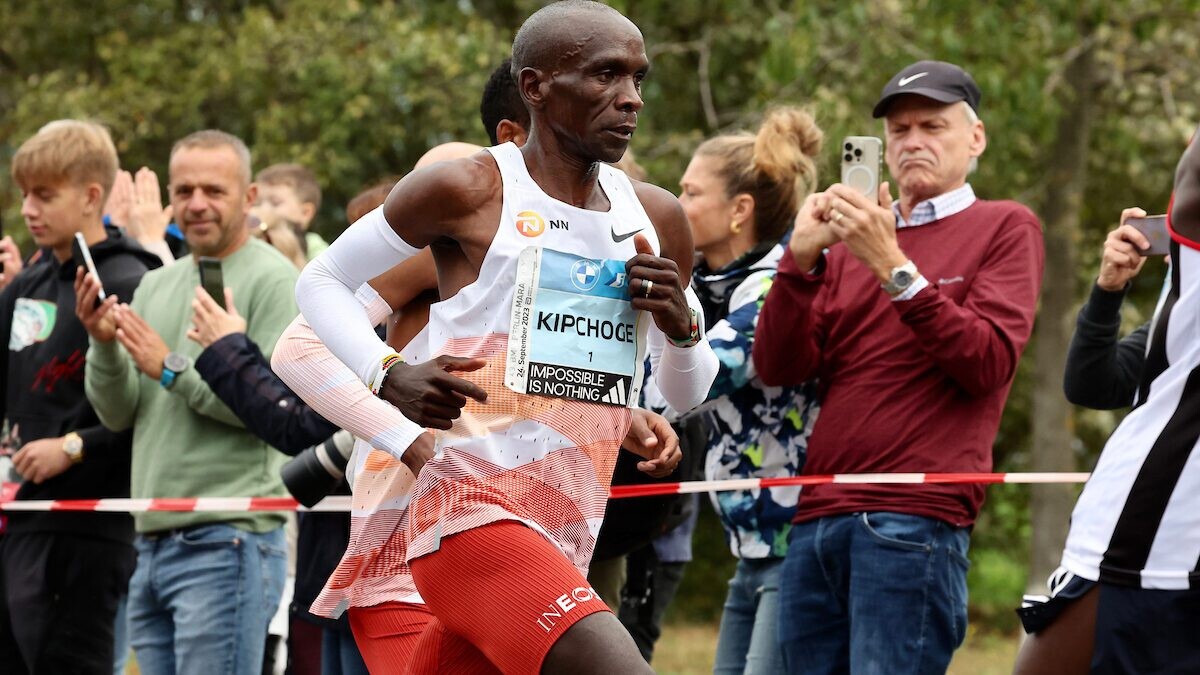
Like most elite runners, Kipchoge’s diet revolves around a balanced mix of protein and carbohydrates. One of Kipchoge’s favourite foods is the Kenyan staple, ugali, a maize meal porridge he typically enjoys with lean beef and a side of nutrient-rich vegetables, like managu, cabbage or kale. Kipchoge usually incorporates other carbohydrates into his meals, often accompanying his ugali with beans, potatoes, or chapati. When he travels, he opts for the classic pre-race meal of runners everywhere–pasta
Good nutrition starts in the morning
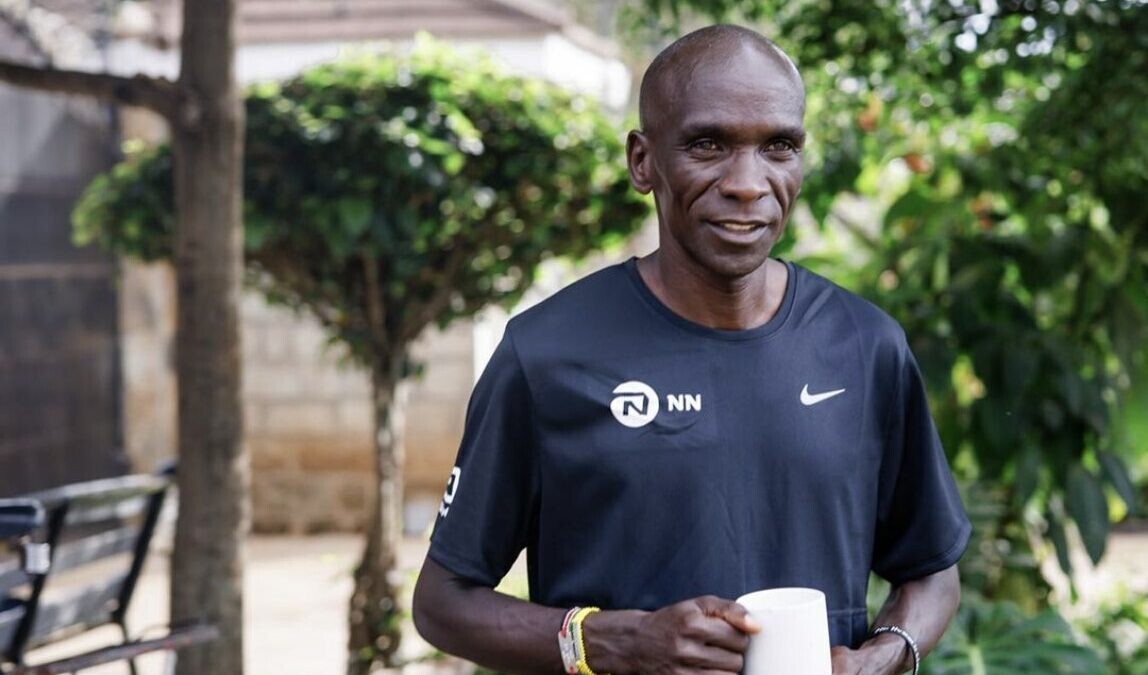
To kickstart his day after long training runs, Kipchoge’s breakfast typically consists of a combination of white tea, bread, and various fruits. On race day, he opts for slightly lighter breakfast options like cereals and milk or oats, ensuring he eats enough to fuel his race without overwhelming his digestive system.
Hydrate, hydrate, hydrate
Hydration is also a key component of Kipchoge’s regimen. He constantly aims to drink three litres of water per day, replenishing the fluids lost through sweat during his intensive workouts. He sometimes enjoys plain milk or mursik, a traditional fermented milk popular in Kenya.
Carbs are key
Kipchoge’s nutritionist emphasizes consuming the right carbohydrates to enhance his endurance performance. This includes foods like rice, pasta, potatoes, oatmeal, bananas and pancakes in his diet. His nutritionist points out, however, that runners should be cautious when including a lot of whole grains or high-fibre carbohydrates in their diets since this can cause gastrointestinal distress for some.
Keep it simple
Despite his success, Kipchoge’s dietary approach remains uncomplicated, focusing on locally sourced, wholesome ingredients that provide the necessary nutrients to fuel his training. Nutrition is highly individual, so following the marathon world record holder’s diet religiously is not the right approach, but the simplicity of his diet is something everyone can emulate.
Your nutrition plan does not need to be complicated or expensive to be effective. By focusing on whole foods and balanced nutrition, you can get the energy and nutrition you need to perform at your best.
by Brittany Hambleton
Login to leave a comment
What it takes to become a Kenyan distance champion
For several generations now, Kenya has produced many of the world’s greatest distance runners.
Many athletes from elsewhere in the world, meanwhile, have tried to tap into the secrets of Kenya’s success as they try to play catch-up – quite literally – with the east African nation that continues to churn out global medallists and world record-breakers.
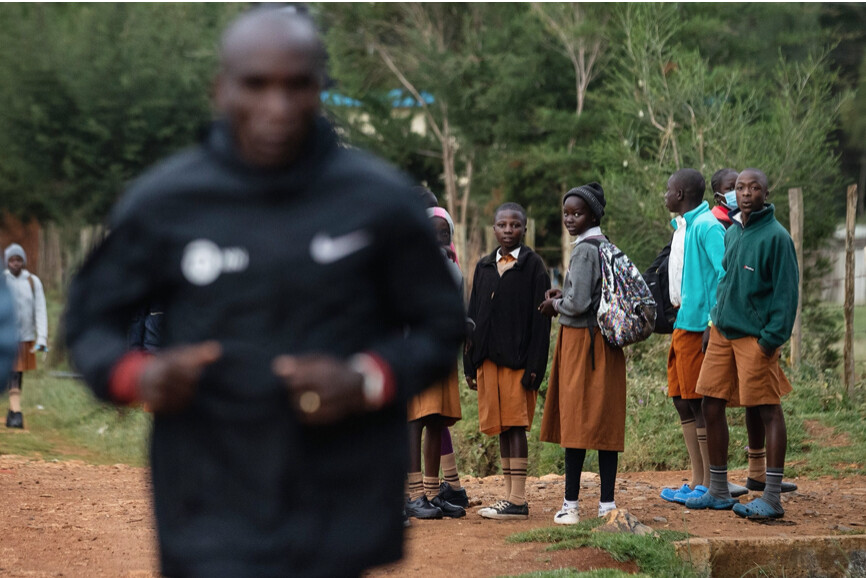
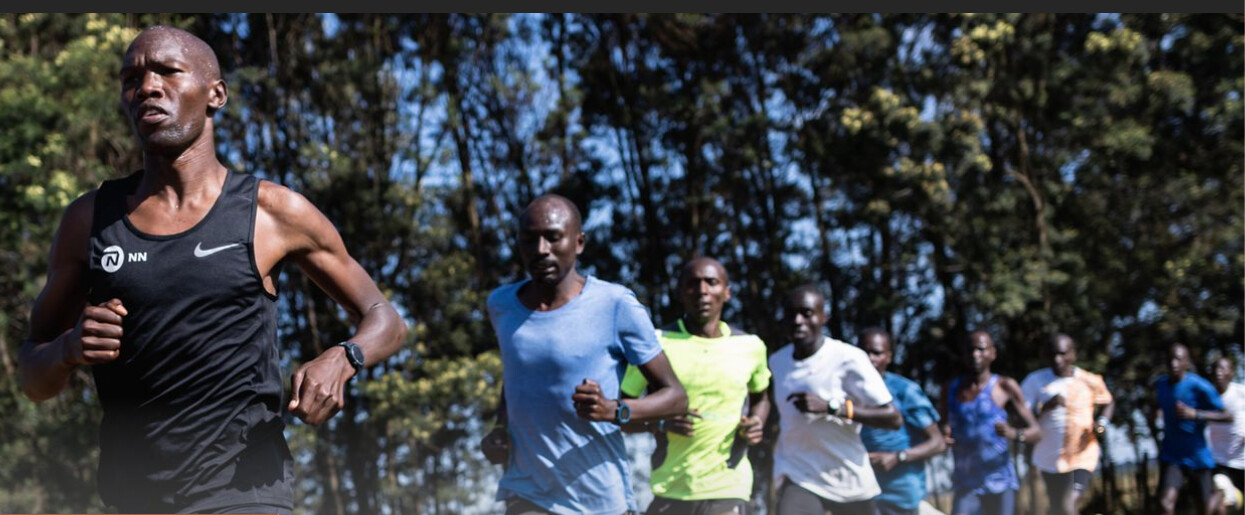
The truth is, there is no one single reason why Kenya is so dominant in distance events. It’s more down to a combination of factors, many of which were explained during a recent trip to the NN Running training camp in Kaptagat, about 24km east of Eldoret, where the likes of Eliud Kipchoge trains for 11 months of the year.
A way of life
There are few countries where people live and breathe athletics, and where the No.1 Olympic sport can claim to be more popular than football, filling entire stadiums even for age-group championships.
And while Kenya isn’t the only country in the world where kids run long distances to get to school, running has a whole different meaning to many people in the country.
Running is something that comes naturally to us as it’s something that has been part of our lifestyle since we were born,” says three-time world half marathon champion and two-time New York City Marathon champion Geoffrey Kamworor. “As a kid, I used to run from home to my school three kilometres away back and forth each day, so you end up running sometimes 12 kilometres a day as a teen without even realising it.”
Beyond being a means to an end, there is also a genuine love for running among the Kenyan population.
“As a kid, I would always go and watch athletics competitions when not at school and I enjoyed watching people competing,” added Kamworor. “It awoke my passion for running, especially seeing people cross the finish line and winning a trophy. In high school, it was always a fun and proud moment to represent your class and win a cup. I found it very encouraging.”
Having running embedded into day-to-day life sets Kenya apart from many other nations. But it’s just one of the many reasons why it is known as being the ‘home of the champions’.
Genetics
Simply running to school each day doesn’t automatically turn everyone into a world-class athlete. Genetics, as it does for every elite athlete, likely play a significant part.
Many people in the Rift Valley, where most of Kenya’s top distance runners originate, belong to the Kalenjin tribe. When compared to other Kenyan tribes, Kalenjin people are often described as having good natural running attributes: namely lean bodies and long legs.
Kipchoge, for example, isn’t particularly tall (1.67m / 5ft 6in), but the muscles on his legs are incredibly lean, his body fat percentage is low, and the strength in his feet make it appear as though he bounces along the grass.
But attributing all of Kenya’s success to just their genetics would be a gross over-simplification.
Conditions
Another element that helps Kenyan athletes in their training and preparation is the unique climate and surroundings in this part of the country. It also probably explains why there are so many training camps between Kaptagat and Iten, and why some people refer to it as the ‘Hollywood of elite runners’.
This region is located at 2500 metres above sea level, which, given the lack of oxygen, helps athletes produce a higher concentration of red blood cells and haemoglobin when training. This, in turn, gives runners an advantage when they return to lower altitudes to race.
The Eldoret region is also full of endless forests and dirt roads for athletes to use when running, while the area also enjoys a temperate climate with daytime temperatures ranging between 22-26C (68-78F) throughout the year, dropping to 10-12C (50-53F) at night time. That, combined with the good air quality, makes the area something of a distance-running paradise.
But as Kenya’s economy continues to develop, so do the local villages and the wider region, meaning many of the local dirt paths are now being made into proper roads – which is great for facilitating transport and access from other points of the country, but less so for athletes seeking a run-friendly surface.
Athletes are adapting well to this evolving environment, though, while remaining in close contact with nature. The Kalenjin community, Kipchogeand Kamworor included, are running many tree-planting initiatives. “We evolve in a very natural environment which is a great advantage when it comes to training,” says Kamworor.
Patrick Sang, the 1992 Olympic silver steeplechase medallist and head coach at the Kaptagat training camp, explains how the new generation of running shoes can help counter the effects of running on harder roads.
“New running shoes help a lot because athletes can now do a lot more training on a hard surface and still recover on time to do their next hard session,” says Sang. “Overall, you can get more work done to help improve performance.”
Sleep, eat, train, repeat
Most world-class athletes are fully committed to their sport, but the elite runners at the Kaptagat training camp in particular take dedication to a whole new level.
Many of these athletes – including young mothers such as two-time Olympic 1500m champion Faith Kipyegon – have children who are at home during the week so that they can entirely focus on their training at the camp.
“Of course, it’s very hard but that’s the only way to be fully dedicated to being the best athlete you can and avoid any distraction,” said Kipyegon.
When not running, athletes at the Kaptagat training camp are focused entirely on other elements of their training, namely recovery and nutrition.
“When you are at the camp, your sole focus is on running and you are not distracted by anything else,” says Kamworor, father to five children, including young triplets. “You are away from your family, your wife and your kids during the whole week, and that makes you take your training very seriously as you are making sacrifices to achieve your goals. That’s the only way to be focused 100% on running and to give your very best.”
As in any walk of life, hard work and having the right mind-set are key to success. Kipchoge might be the most successful athlete at the camp, but Sang says that’s not just down to his talent. “Eliud isn’t the most gifted athlete within his training group but certainly the most dedicated,” Sang says of Kipchoge, who is always the first one ready for training and the last one to leave.
In an average week, athletes at the Kaptagat camp do one long run of 30km (once a month it will be 40km), which usually takes place early on a Thursday morning. Typical track sessions, meanwhile, would be something like 8x1600m (each rep completed in 4:40) and 8x400m (at an average of 65 seconds) on their local 380m cinder track.
“Have you seen him?” Sang says when watching Kipchoge train. “This guy is a machine.”
Athletes are religious in their approach to punctuality and producing their best effort in training. And other local athletes from outside the NN Running team are welcome to join in the sessions, provided they arrive on time. After all, no one wants to be playing catch-up with the likes of Kipchoge and Kamworor.
Community
The Kaptagat training camp is run entirely by the 25 athletes who live there for 11 months a year from Monday to Saturday morning before going back to spend quality time with their family, often in the big city of Eldoret. In and around the 12 training runs they do in a typical week, the resident athletes to everything at the camp.
“If you look at life at the camp, the one making bread is an athlete, the cleaning is done by the athletes, the one doing shopping for the camp is an athlete,” says Sang. “You don’t want athletes to live on another island.
“The whole idea is to make sure these athletes become well-rounded people. You wouldn’t want to help someone become a great athlete who lacks social skills or is out of touch with society.”
Kipchoge, whose wife and three children live just 45 minutes away from the training camp, could easily go and spend time with his family during his time off, but instead he chooses to stay at the camp with the rest of the group, monastically isolated from the rest of the world.
Kipchoge is rarely bored, too. When he’s not training or resting, he will be reading or working at the camp or reading.
The sense of community extends to caring about the environment. Every athlete at the camp gets a tree planted at the entrance as a welcome gesture and to symbolise their connection to nature. Some special guests to the camp – including Ethiopian legend Haile Gebrselassie – have also had a tree planted for them in Kaptagat.
Occasionally, athletes at the camp will give each other lessons, or they will engage in real debates around serious issues, helping them develop holistically as people.
Simplicity
Far away from the latest technological innovations you often hear about in other parts of the world, daily life at the camp is basic.
Upon entering the gates at the Kaptagat training camp, the 380m cinder track is located on the left. It has a slight incline on the first bend and a couple of cows as spectators, but it meets all their needs.
“A synthetic track isn’t needed for what we do and the way we train,” says Marc Roig, a former international runner from Spain, who now works as a jack of all trades for NN Running, acting as a fitness coach, physio, runner, mentor and pacemaker. “If our athletes need a synthetic track, they can go to the one in Eldoret an hour away.” In fact, there are just four synthetic tracks in the whole of Kenya, but it’s clearly not a barrier to producing top athletes.
The runners at the camp rarely lift weights or spend time stretching, but twice a week they will do core strength sessions. Instead of water, they drink mursik – a nutritious fermented milk – in the morning and Kenyan tea in the afternoon. And not a single drop of water during their 30km long run. “That’s okay,” says Sang. “They don’t need it.”
Within the camp itself, there is a TV room with a small library corner with a few books there for the athletes, a living room for their meals, the dormitory (one for women and another for men), a basic gym comprising a bike, a treadmill, some elastic bands and a light weightlifting bar (with maximum 40kg available) and a big blue plastic drum outside used for ice baths.
It’s all quite rudimentary, but they don’t need more, and it seems to work.
The only visible ‘luxury’ – aside from the eco-friendly solar panels to get hot water – is that Kipchoge has his own bedroom. But even the king of the marathon does his fair share of the chores. He prepares tea for other athletes, and there’s a strict cleaning schedule that all athletes must stick to.
“I think that when you stop leading a simple life, your mind-set loses contact with the outside world and you lose your focus on your actual goals,” says Kipchoge. “At this point, you run the risk of forgetting about the really important things in life.”
Life at the camp is minimalistic, but nobody complains. Indeed, this simplicity is what defines them and enables the athletes to keep their focus and remain humble about who they are, where they come from and what they are here for.
Hollywood of running
To be the best, you need to surround yourself with the best – which is another reason why the Rift Valley continues to produce champion athletes.
The likes of Kipchoge, Kamworor and Kipyegon are true A-listers, but Kaptagat is filled with talented athletes who have achieved podium finishes at major championships and big city marathons.
Roig, who has a 2:18:05 marathon PB, moved to Kenya several years ago. “When I take my kids to school, I feel ashamed saying I am a runner as many of the dads there have 2:05 marathon PBs,” jokes Roig, who is now the race director for the Valencia Marathon. “There is even a mother at the school who has a PB similar to mine!”
But the Kaptagat camp isn’t the only leading training venue in the area. Iten, a small town at 2400 metres above sea level about an hour north of Kaptagat, is often referred to as the ‘home of champions’ or the ‘Hollywood of distance running’.
One of the drivers used for NN Running Team’s trip to Kenya, for example, was a former 1:06 half marathon runner. His wife, meanwhile, was a 2:21 marathon runner who finished second at the Rotterdam Marathon a couple of years ago. His neighbour is Emmanuel Korir, the Olympic 800m champion, and he is good friends with Joyciline Jepkosgei, the multiple world record-breaker and 2021 London Marathon champion.
Abdi Nageeye, the Olympic marathon silver medallist, also happened to be in Iten at the time of the trip. While ferrying around members of the media, the driver passed by a gas station named ‘Oslo’, which is one of many local businesses owned by Vivian Cheruiyot. The 2016 Olympic 5000m champion opened the station after winning at the Oslo Diamond League meeting.
One of the biggest training venues in Iten is the High Altitude Training Centre founded by multiple world half marathon champion Lornah Kiplagat, who herself is part of a highly successful family of runners, including Sylvia Kibet, Hilda Kibet and Susan Sirma. Many international athletes, including the likes of Mo Farah and Paula Radcliffe, have previously stayed there, while former steeplechaser Bob Tahri of France opened his own training centre in Iten a few years ago.
The Rift Valley – Iten and Kaptagat in particular – is like nowhere else on earth. Everybody knows a champion who is friends with another champion, who is the neighbour of another champion.
It’s yet another way – and one of the many – of becoming a great runner.
by World Athletics
Login to leave a comment
Eliud Kipchoge and his technical team are expected to land in Vienna Tuesday for the INEOS 1:59 Challenge this weekend
World marathon record holder Eliud Kipchoge and his technical staff are expected to land in Vienna Tuesday morning ahead of the “INEOS 1:59 Challenge” this weekend.
The Olympic marathon champion was Monday night treated to the affluence that one of Great Britain’s richest persons, Sir Jim Ratcliffe, is accustomed to.
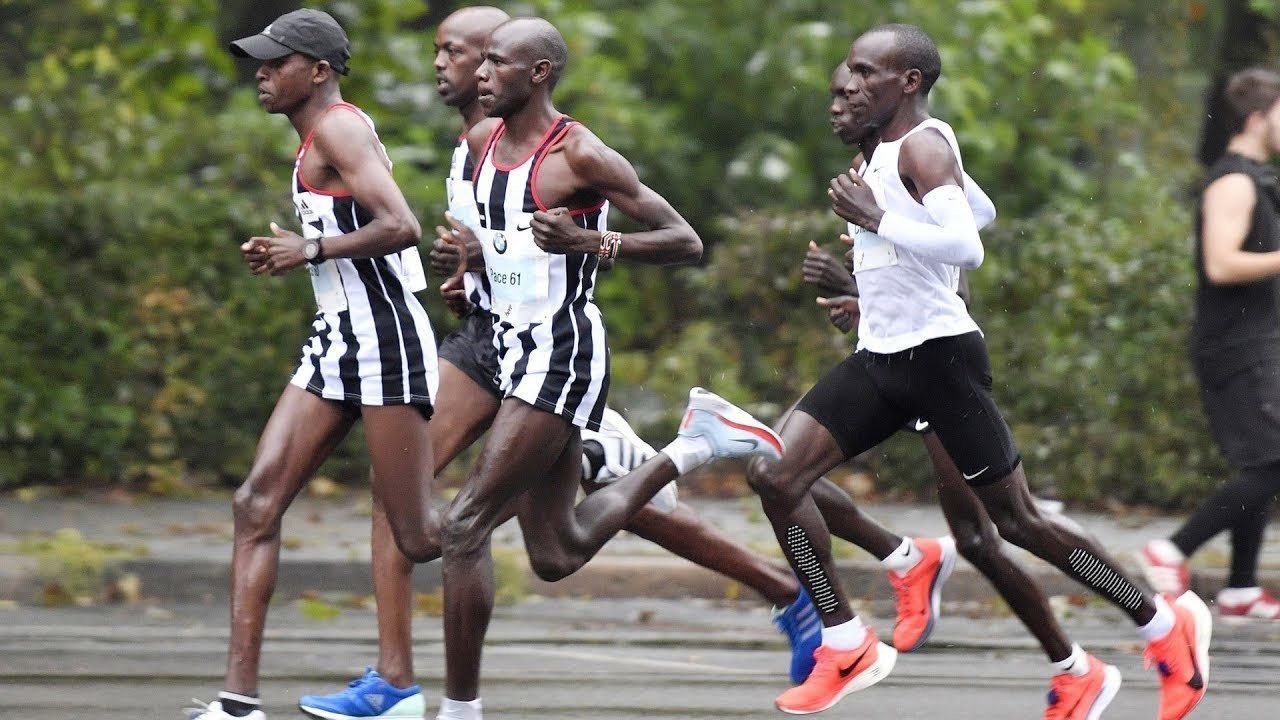
Kipchoge left for Vienna aboard Sir Jim’s Gulfstream G280, which was flown by two pilots from his British base to fly Kipchoge to the Austrian capital.
The jet, valued at $24.5 million, has got Kenyans on social media talking about Kipchoge's attempt to become the first man to run the 42-kilometer distance in under two hours this weekend.
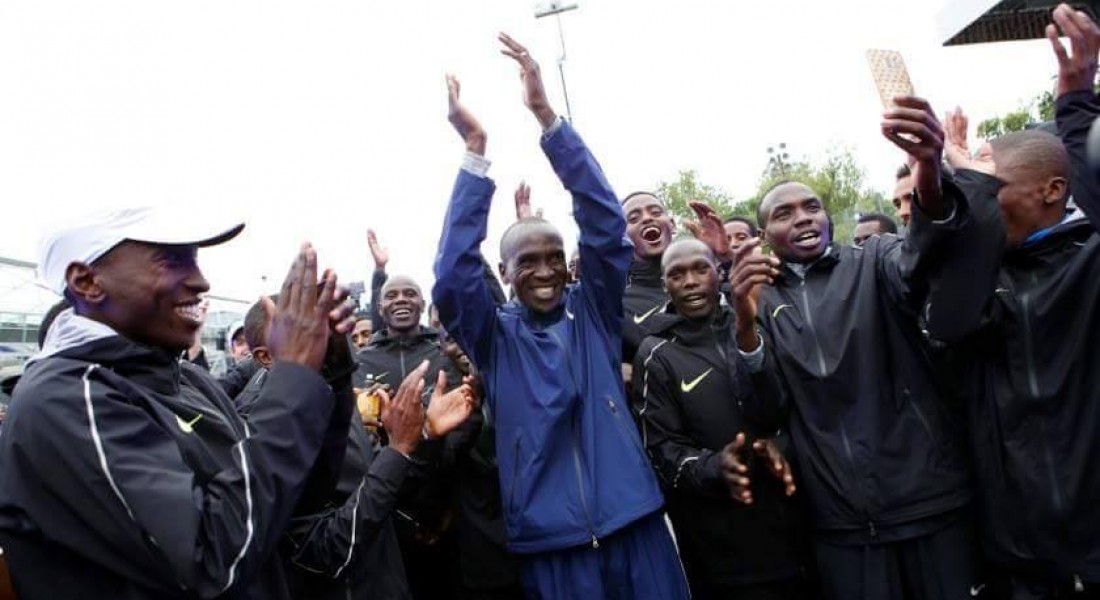
"Eliud Kipchoge" is like a human machine. Pride of Kenya and the son of the Land. There is Mursik waiting for you Legend. Know that you inspire many across the board."
"The fact that Eliud Kipchoge is attempting the INEOS 1:59 record affirms his place in the annals of athletics history. The attempt alone is enough, the victory would be a bonus. He is no longer running against man, he is running against time."
"No longer running against other men, he's running against time. INEOS1:59. KENYA is proud of you Eliud kipchoge. See you on 12th Oct 2019."
Login to leave a comment
INEOS 1:59 Challenge
Mankind have constantly sought to reach new frontiers and to achieve the impossible. From Edmund Hillary reaching the summit of Mount Everest to Roger Bannister’s four-minute mile to Felix Baumgartner jumping from space we have frequently redefined the limits of human achievement and broken new barriers previously seen as simply impossible. After the four-minute mile and the ten second 100m...
more...Kenya´s Benson Kipruto will Defend his Scotiabank Toronto Waterfront Marathon Title in October
"If I can defend my Toronto Marathon title it will be very good for me and for my marathon career," he declares with a smile. He remembers well the joy his 2:07:24 performance brought him and the festivities which followed upon his return to Kenya.
"I started the celebration at the (Eldoret) airport with my family, my friends and my training mates and also my coach," he recalls of the celebration which included drinking fermented milk called Mursik in the Kalenjin warriors’ tradition. "We extended the celebration to my camp. We feasted on some goats with my friends and training mates.
"This year I would like to run my personal best in Toronto. Hopefully, if the weather will be good and also, if the pacemakers do a good job, I am hoping to run maybe 2:06 and maybe try to run a course record."
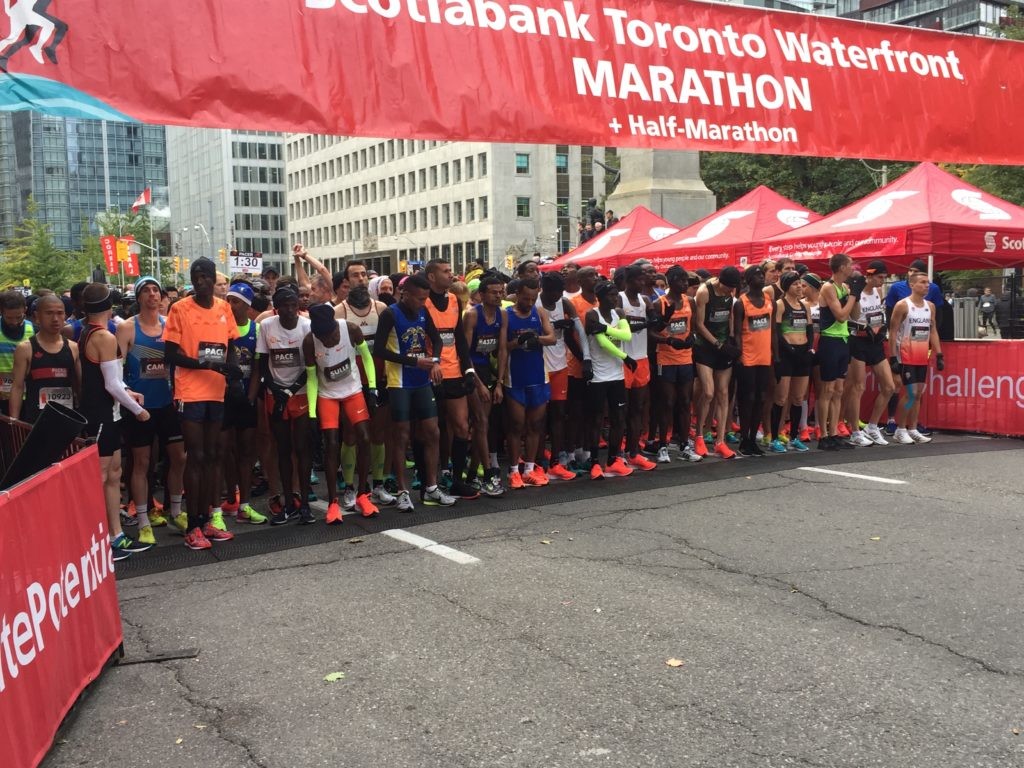
Kipruto’s best is 2:07:11 set in finishing third at the 2018 Seoul Marathon and he also ran 2:07:21 at the 2017 Gongju Dong-A Marathon in Korea. With three recent 2:07 results he is clearly on the verge of another major breakthrough which could see him tackle the current Toronto course record held by his compatriot Philemon Rono (2:06:52 in 2017).
Asked what his greatest impression from last year’s five day visit to Toronto was he is quick to credit the organizers.
"The people I met, they are friendly like the first one, Alan Brookes the Race Director, he is very friendly," he reveals. "The course itself is good. And also, I think the weather that day was not so good."
Last year runners awakened to temperatures hovering near freezing point and also encountered a strong headwind coming off Lake Ontario. Still, winning this IAAF Gold Label race caught the attention of the world’s marathon running aficionados.
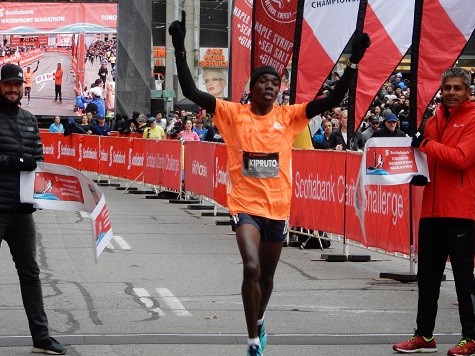
"I would say it opened doors to my future," Kipruto explains. "I was invited to the 2019 Boston Marathon because of Toronto. So my name has grown. (Toronto) was my first victory.
"Boston was a good performance for me; I managed to finish, first of all. I was injured during the race."
Kipruto’s feet were badly blistered during the race. But his coach Claudio Berardelli offers another explanation saying that he pushed Kipruto perhaps too much over the final three weeks of his preparation and so he was also over-trained. Ultimately, he finished a respectable 10th in 2:09:53 within two minutes of the winner Lawrence Cherono, also from Kenya.
Performing at this level has paid dividends for Kipruto. First place in Toronto earns CAD $30,000 while a course record is worth another CAD $40,000. In a country where the per capita income is less than $2,000 it is a lucrative business. He sees it as an investment for the future.
Though he was born in the village of Tolilet he recently bought some land 40 kilometres away in Kapsabet and moved his wife and one-year old daughter, who is called Princess Camille Chemutai, to the place.
Now his family is nearer to the training camp where he resides during the week and where he trains with such elite athletes as Amos Kipruto (2:05:43 personal best), Vincent Kipchumba (2:06:56), Solomon Yego (2:06:23) and Barselius Kipyego (2:07:57). He goes home on weekends.
Login to leave a comment
TCS Toronto Waterfront Marathon
The Scotiabank Toronto Waterfront Marathon, Half-Marathon & 5k Run / Walk is organized by Canada Running Series Inc., organizers of the Canada Running Series, "A selection of Canada's best runs!" Canada Running Series annually organizes eight events in Montreal, Toronto and Vancouver that vary in distance from the 5k to the marathon. The Scotiabank Toronto Waterfront Marathon and Half-Marathon are...
more...The magical Kenyan Diet and training at altitute are two keys factors why Kenyan runners are having so much success
One unique and interesting thing about Kenyan runners is their daily diet.
A diet that gives them energy to run for a long time and fast. Many wake up at 5am and eat something like a slice of bread or ugali with tea to provide energy.
Some prefer going for their morning run on an empty stomach but after training they take tea with rice or ugali. This is common in Kenya as well as drinking at least two glasses of tea in the morning.
The most important meal of the day for many Kenyan runners is lunch. Most eat a heavy amount of ugali, rice and beans/potatoes or stew depending on the athlete.
For example super stars like Eliud Kipchoge and Wilson Kipsang, love ugali with traditional vegetables like spinach accompanied by milk called mursik (sour milk).
Mursik is sour milk that taste so sweet. It contains enough proteins to help build and repair muscles due to tearing during daily training and competition. With daily intake it helps the runner be more energetic, strong and more able to be tough.
The Mursik Factor has been making headlines when an athlete wins a race or breaks a record because Mursik never disappoints. Mursik and ugali are both key. The ingredients of ugali itself is such a secret and many keep wondering where the energy of Kenyans comes from.
Ugali is a carbohydrate but has amazing ingredients. Ugali is a type of cormeal porridge and is made from maize four.
It is cooked in boiling water or milk until it reaches a stiff or dough-like consistency. 100g of maize flour contains folates 0.6mg, vitamin A 0.5mg, vitamin B1 3.0mg, vitamin B2 2.0mg, vitamin B3 14.9mg, vitamin B6 2.0mg, vitamin B12 0.007mg, iron 21mg, and Zinc 33mg.
In addition the roughage helps in digestion. On top of this energizer, the high altitude helps the body produce a lot of hemoglobin due to less oxygen giving runners an easy time to run fast in low altitude outside Kenya.
This is the magical Kenyan diet that propel Kenyan runners like a space ship going into the universe.
How can you doubt anything that Eluid Kipchoge does to run a 2:01 marathon?
by Willie Korir reporting from Kenya
Login to leave a comment
Eliud Kipchoge is a simple man who helps others - Part three of a three part series on the King of the Marathon
The King of The Marathon Part Three: an inside look into the life of Kenya's Eliud Kipchoge.
When Eliud Kipchoge passed the first 10k mark in 29:01 on September 16 in Berlin everyone was excited because he was nine seconds ahead of world record pace.
Actually this was his slower 10k split of the day. He picked up the pace and his second 10k split was 28:55, third 28:49 and fourth 28:47 clocking 2:01:39 to smash the world marathon record.
So how did he do this? It is not drugs! He has never failed a drug test.
Besides doing some unbelievable workouts (as detailed in part 2) he pays close attention to his diet. His favorite meal is ugali, kalenjin traditional milk called mursik which nutritious and energetic, traditional veggies (such as; socha, saga, mborochet, chepkerta and mitiat). These are herbal and they build the immune system and adds to the blood.
He eats roasted maize for carbohydrates. How does he relax? During leisure time he likes reading at least two or three inspirational books every month. This is where a man full of wisdom and maturity adds to his knowledge.
One quote he likes, "The impossible is possible and imitation is limitation.” by John Manson.
Eliud is a dairy and tea farmer and when he is at home he looks after cattle. His last born kid son started running so he can follow in his father's foot steps.
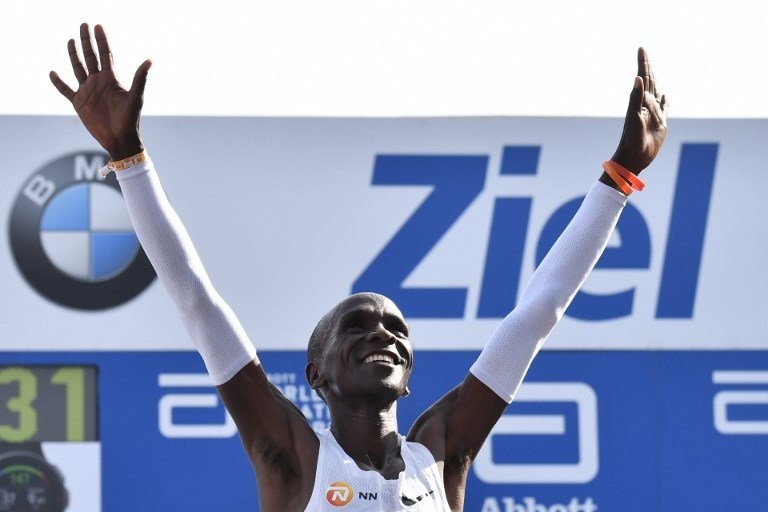
After smashing the World Marathon Record in Berlin, Eliud is expected to get $50,000 for winning and $69,000 for breaking the world record. This is 12 million Kenyan Shillings. In additon, truck manufactures, Isuzu East Africa, which Kipchoge is a Brand Ambassador, will give him a D-max luxury double cabin vehicle.
There are also gaming companies which will reward him. Eliud has involved himself in charity work too. He helps raise funds for dispensaries, pay school fees for unable kids, he helps upcoming athletes with housing and hospitals bills.
He pays for airline tickets for students going abroad on scholarship. He helps to motivate young Kenyans on the importance of hardwork. Kenya has been very proud of Eliud Kipchoge and since he smashed the world record the whole country is behind him.
(Editor’s note: Part one and two of these series were published the last two days on My Best Runs.)
by Willie Korir reporting from Kenya
Login to leave a comment


